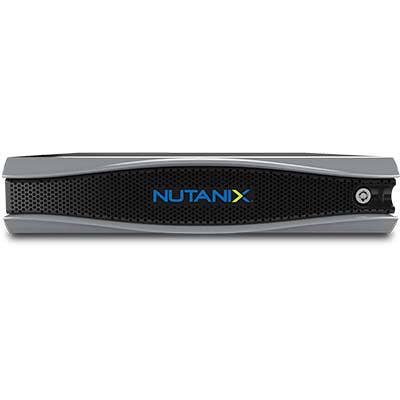Dell Technologies Capital's Scott Darling On Running A Different Breed Of Corporate VC Firm
Re-imagining Corporate Venture Investing
Scott Darling, president of Dell Technologies Capital, says that investing in startups that compete with parent company Dell Technologies is far from forbidden. It's actually part of doing business. "Something that may look competitive today, could be something that's very important to [Dell] later," Darling told CRN in an interview. "And you have to be willing to take risks and bet on things that may not look entirely aligned, and do it anyway."
Following the merger between Dell and EMC, the portfolio of venture investments from EMC (and to a lesser extent from Dell) have come together to form the Dell Technologies Capital portfolio. Most of the VC unit's team, including Darling, also came over from EMC. Dell Technologies Capital plans to invest about $100 million a year going forward, into between 20 and 40 deals annually, Darling said. The firm brings numerous differences from the typical corporate VC model, including a focus on backing young startups (mostly Series A and Series B funding rounds) and working actively in building the companies -- as well as the interest in backing startups even if they compete with Dell Technologies or Dell EMC. Dell Technologies Capital is a key avenue for Dell to stay connected to the massive amount of innovation taking place outside the company, Darling said.
What follows is a portion of our interview with Darling.

What makes Dell Technologies Capital stand out in the corporate venture space?
What we're doing here is a little bit different than most places. I ran most of Intel Capital previously, and I worked at a private venture firm. And after doing that for a while, I got a point of view about how things are set up. Traditionally, private venture firms tend to be early-stage, very active company builders. And then you tend to have the corporate guys, that tend to be later stage, don't lead rounds, and only get involved with the company when they scale. And I really felt like there was a hole in the marketplace for a corporate [VC] that was a very early investor, with highly skilled investors from both the private and corporate sector, that can work with companies from pre-revenue to scaling. So that's what we built, it's quite different from most corporate funds. The reason we do it is pretty straightforward -- the pace of innovation is enormous. And no matter how big a company you are, no matter how dominant you are in any particular segment, there's more innovation going on outside the corporate walls than there is inside. So you just have to stay connected to that. You've got to have a culture that welcomes working with external innovation, and knows how to partner for mutual success. And we're kind of one of the avenues for the broader Dell Technologies, to engage with that external innovation.

Is there a certain philosophy that you're bringing about what the future of the data center will look like?
You've got to keep an open mind. Of course we as a company have a point of view -- we believe that some workloads are going to run in pure public cloud, but we think that most enterprises are going to have a hybrid cloud environment. As investors, trying to follow technology trends that we think are going to be relevant to the company, we have pretty broad purview to invest across a wide range of activities. So we try to be driven by the external trends, not by our internal point of view.

Could you give an example of that in your portfolio?
We invested in this company called Graphcore, which is a machine learning acceleration company. They're building a next-generation processor to run machine learning applications much faster. We concluded the investment about a year ago -- of course machine learning is all the rage now. But if you had said to someone, why would Dell be interested in machine learning -- you're really not an application layer company? Our view was that machine learning is going to become a part of all workloads, and that in fact the hardware underneath it must be capable of running those workloads. So we thought it made sense. Another possible example is Edico Genome, which does acceleration of genomic capability. It's very much the same kind of thing -- you'd say, wow, Dell Technologies is not a health care science company, why are they investing in genomic acceleration? We think that just like many decades ago, when people in the IT industry figured out that financial services is a huge consumer of IT technology, we believe that genomic analysis is also going to become something that pervades the entire healthcare industry. And therefore we should have capabilities we can provide to our customers in those areas.

There are plenty of venture-backed companies that could be considered competitive to Dell. Are you investing in competitive companies?
That's something that I had long discussions with Michael [Dell] about, and Joe [Tucci] prior to that. The thing that's great about Michael is that he's one of those few entrepreneurs that started as a college student in his dorm and is now running a roughly $75 billion revenue company, and he's had the skill set to manage across that entire spectrum. Because he's seen this from all angles, these kinds of questions do not become roadblocks. Everybody understands that the world does not run on pre-planned courses, and you have to keep a very open mind. And something that may look competitive today, could be something that's very important to you later. And you have to be willing to take risks and bet on things that may not look entirely aligned, and do it anyway. And learn something from it.
The cloud [is] a perfect example. If you went back, four or five years, the cloud was positioned as something that was bad for companies like Dell EMC, because it took workloads away from on-prem. Well, our view is we need to understand the cloud, we need to have investments. This ability to make hybrid clouds work means you need to have expertise [with] on-prem, which we have tons of, but you also have to have just as much expertise about how the cloud works.

What are some examples of investments you've done with companies that might have been seen as competitors?
We're an investor in Big Switch Networks, and when we invested in that, very soon thereafter we bought Nicira, which became the basis of NSX. And people thought that made Big Switch competitive to us. It turns out now that there's a very strong partnership between Big Switch and the new Dell Technologies. We're one of Big Switch's most important customers, and very active with them in the channel also ...
Nutanix is [a company] the former Dell team invested in -- it's a great example because it's a hyper-converged infrastructure play. We have our own offerings through VMware and Dell EMC together. I think that's a great example of being able to handle co-opetition. There's no completely clean lines in the tech industry. You can cooperate with someone in some areas, and compete with them in other areas. It's just the nature of the tech industry. I think that's a great example of a place where there's a complexity in a relationship. Nutanix is a great customer, they pull through a lot of Dell server and capability, and we can live with that. And in other areas they're competitive, and we can live with that.

In addition to capital, are you offering connections to channel partners to your companies?
Absolutely. Companies go through phases. The first phase is the product conceptualization, where you're working with the CEO and defining what the product is, figuring out if it solves real customer problems or not. The next phase is the first customers -- you get the product done, ship it, make all the adjustments, maybe you have to pivot. Because three-quarters of our deals are Series A or B [financing] deals, we're very active all the way back into those early stages. Then there's the scaling phase -- you've dialed it in, you've figured out a product, you've figured out that customers like it. Then you start working through all the go-to-market -- do I sell through the channel, do I sell direct, all those kinds of things. What's wonderful about [Dell and EMC] coming together is we have a very broad go-to-market capability. Frankly, Dell had an excellent channel capability, and EMC had a great reputation for its channel. Now as investors we feel like kids in a candy shop, because we have both capabilities. Absolutely, channel capabilities is a huge thing.